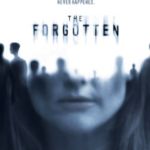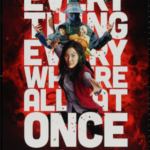Black Panther (2018)

Today’s guest review is by Justin Petrisek.
Let’s talk about history.
Most superheroes fill some void. There is clearly something wrong with the world and they are precisely the ones who will make the right choice in order to put things right. In response to the horrendous events occurring during WWII, American audiences saw the emergence of Superman, a hero who became an emblem of virtue and seemed nearly invulnerable to every kind of evil. Then a few years later there was Captain America, a hero summoned to represent the American flag in human form, once a frail young adolescent and now a resilient, unwavering, and nearly indestructible world hero.
But while Superman and Captain America seem to be the byproduct of a particular moment in history, Black Panther and its recent Marvel film adaptation seek to celebrate history itself, what it means to be a nation, and the legacy of the government at the service of the governed. It celebrates not what happened but what could have been or still could be. It sees potential and dreams up a world in which that potential could be fully realized.
There is perhaps no better moment in the film to capture this sentiment than the first of two post-credit bonus scenes. King T’Challa (Chadwick Boseman), who the audience knows to be the current Black Panther, stands before a gathering of the United Nations and representatives who have no clue as to the king’s alter ego:
“For the first time in our history, we will be sharing our knowledge and resources with the outside world,” King T’Challa says. “Wakanda will no longer watch from the shadows. We cannot. We must not. We will work to be an example of how we as brothers and sisters on this earth should treat each other. Now more than ever, the illusions of division threaten our very existence. We all know the truth. More connects us than separates us. But in times of crisis, the wise build bridges while the foolish build barriers. We must find a way to look after one another as if we were one single tribe.”
Following murmurs and scoffs from the U.N. delegates, one official derisively asks: “What can a nation of farmers have to offer the rest of the world?”
https://youtu.be/fxkZ4MF36KQ
We watch as those in power have already judged those who they perceive as inferior. They believe these people to be impoverished and unable to contribute to global life. The beauty backing Black Panther and its fictional nation of Wakanda is that what appears impoverished is in fact home to great advancement and vibrant life. It is not simply a response to fill some void of history, but it is a celebration of life’s potential and history we can make as a part of it.
It is no wonder then that Black Panther’s release has made its own kind of history. The 18th film in the Marvel Cinematic Universe (MCU), it became the first to surpass its production cost ($200 million) in the opening weekend. It set a benchmark for a feature film with a predominantly black cast. Black Panther also became the ninth-highest-grossing film of all time and the highest-grossing film in history by a black director. But its history runs deeper than the box office statistics.
Black Panther picks up in the rubble and aftermath of Captain America: Civil War, where the character of Prince T’Challa and his superhero alter ego Black Panther were first introduced. Having watched his father die under his watch, T’Challa returns to his home country of Wakanda to take his father’s place as king.
Wakanda is a bit of a masked superhero in its own right: an African country that most regard as an impoverished, third-world nation but in reality is something of an Afro-futurist utopia with technological advancements every world power would surely envy. The secret to its technological marvels is vibranium, a rare ore found exclusively in Wakanda and the result of a millennia-old comet striking the continent. (As a fun movie game — try keeping track of how many times characters say ‘vibranium’ throughout the film, I guarantee you’ll lose track somewhere in the twenties.)
This leads to Wakanda’s strict isolationist mentality. If the world cannot be trusted to do what is right with the kinds of technology — magnetic levitation, super bullet-proof armor, sonic hand cannons — that come from vibranium, then they must be kept hidden. For humanity’s own sake is the reasoning.
Family, friends, and counselors begin to gather around T’Challa in a beautifully designed and until now a cinematically unexplored technological Africa (much credit given here to production designer Hannah Beachler, a regular collaborator with director Ryan Coogler). Soon after T’Challa becomes king through ritual combat, he is bombarded with ethical questions about Wakanda’s continued isolationism and the suffering they could possibly alleviate (or avoid) throughout the world.
Everyone has a different opinion about what T’Challa should do, and each character brings his own history, views, and hopes for the new king’s rule. But T’Challa must come to grips with the central questions that are plaguing him: What do the powerful owe to those who are in need? What do strength and technological advancement matter unless you’re using them to help someone else? If Wakanda doesn’t stand up for those who cannot help themselves, then who will? And if the nation of Wakanda only stands up for itself, then who are they as a people?
Cue the villain. A notorious arms dealer named Ulysses Klaue (Andy Serkis), a longtime threat to Wakanda, has suddenly popped back up on the radar. Responsible for stealing a stash of Wakanda’s vibranium and setting off a bomb at the Wakandan border, Klaue has teamed up with former U.S. black ops insurgent Erik Killmonger (Michael B. Jordan) — a thoroughly fated villain moniker if there ever was one.
https://youtu.be/pfBWPhsiN_w
T’Challa leads a team to Busan, South Korea, to chase down and capture Klaue so that he can finally stand trial in Wakanda. A few high-tech car chases and shootouts later and T’Challa finds himself in a battle with Killmonger, someone T’Challa discovers is more than an elite, bloodthirsty soldier from the streets of Oakland. Now, it is not simply Wakanda’s anonymity that is at stake. T’Challa must fight for the throne, thousands of innocent lives around the world, and the legacy of Wakanda.
[SPOILER] Killmonger it just so happens has a legitimate claim to the Wakandan throne. T’Challa learns that his uncle, that is, Killmonger’s father Prince N’Jobu (Sterling K. Brown), had become radicalized while on assignment in America. Prince N’Jobu could no longer bear to watch as innocent black lives suffered and Wakanda’s aid and technology were kept out of reach. So N’Jobu reveals the location of Wakanda’s vibranium and helps Klaue to steal it, resulting in many Wakandan deaths. N’Jobu’s faulty philosophy however hinges on armament and violence, essentially devaluing life in hopes of restoring some kind of balance to society.
https://youtu.be/sw_a0HC6f1s
To make matters worse, T’Challa also learns that his recently deceased father, King T’Chaka, not only concealed N’Jobu’s betrayal but was responsible for his death when he refused to return to Wakanda. What originally began as a mission to bring one man to justice has led to an identity crisis for the royal family and the nation of Wakanda falling into the hands of Killmonger, who like his father has latched onto the idea that freedom can only be gained by armament and violence.
At the heart of this struggle is essentially a question of national power and identity, of what could be for those who possess both knowledge and the means to do something about the suffering they see in the world.
If a quibble is to be found in the film, it must surely be with how T’Challa treats Killmonger’s last moments on screen. [SPOILER] After being stabbed in the chest, Killmonger finally gets to see the Wakandan sunset his father told him about all those years ago in Oakland, but it is a picturesque moment that leaves the audience somewhat conflicted. We want to agree with Killmonger’s desire to help alleviate suffering, even if we wholly disagree with his methodology, and we wonder if more couldn’t have been done to save him. Could he have been treated with the Wakandan technology that saved others earlier in the film and could he be taught to value life and true freedom?
Sadly, Killmonger cannot see past the void he feels in his own life and in the history of Wakanda. Pulling the spear from his own chest to hasten his death, he tells T’Challa:
“Nah, just bury me in the ocean with my ancestors that jumped from the ships. ‘Cause they knew that death was better than bondage.”

Black Panther is first and foremost a story of Wakanda. Its rhythm and cadence come from a history that we do not yet know and can only imagine. Every moment seems full of untold, kinetic history, from its fashion and artwork to the language and rituals. The shared history, engrained in the very architecture of the city, etched into the gestures of the different tribes, composed into the rituals and everyday cultural gestures, speaks to the potential and life that other nations could possibly have. Director Ryan Coogler takes this fictional history seriously, because though it is fictional it is no less real. And it’s a real history that begs the question: what kind of legacy do you wish your nation and tribe to leave?

Black Panther’s MPAA rating is PG-13 for prolonged sequences of action violence and a brief rude gesture. Ryan Coogler directs. Script written by Coogler and Joe Robert Cole, based on the Marvel Comics by Stan Lee and Jack Kirby. Soundtrack produced by Kendrick Lamar with original songs. Costumes designed by Ruth E. Carter. Past Coogler collaborators include cinematographer Rachel Morrison, production designer Hannah Beachler, and composer Ludwig Göransson. Running time: 134 min.
— Justin Petrisek is a writer based out of Virginia. He received his M.F.A. in creative writing and M.A. in literature from George Mason University as well as an M.A. in theology from the Augustine Institute.













